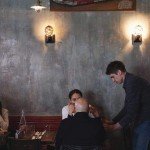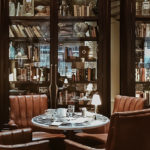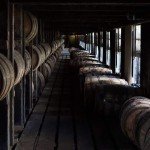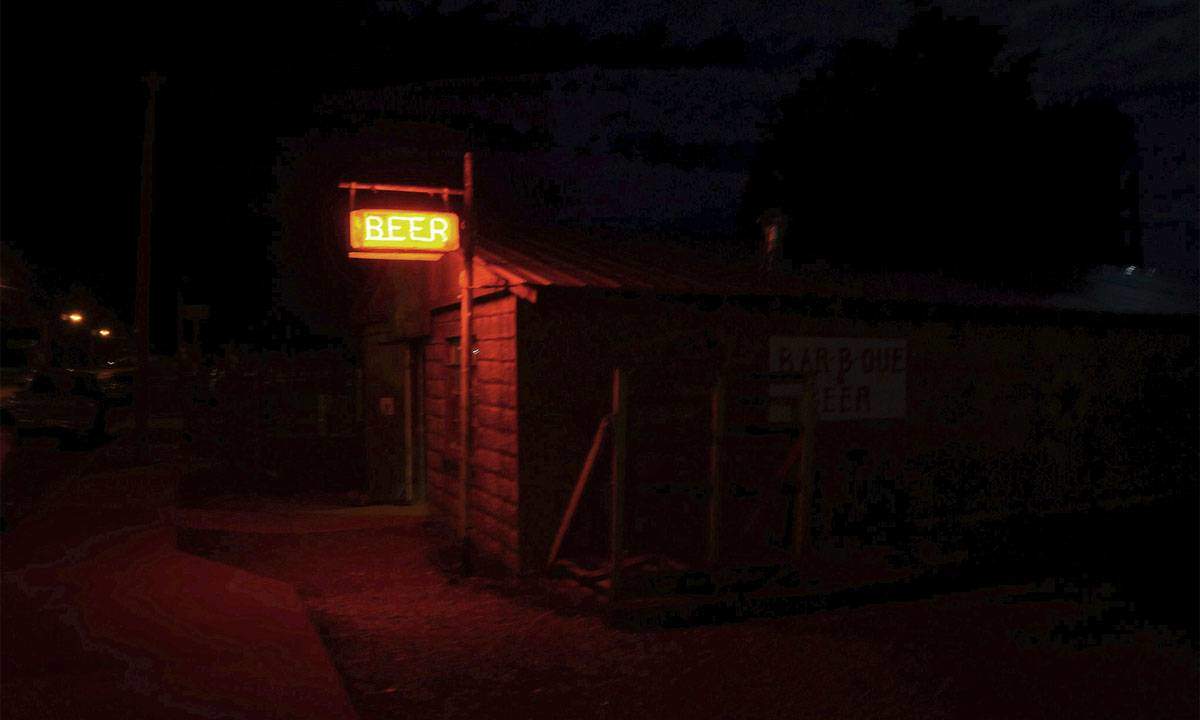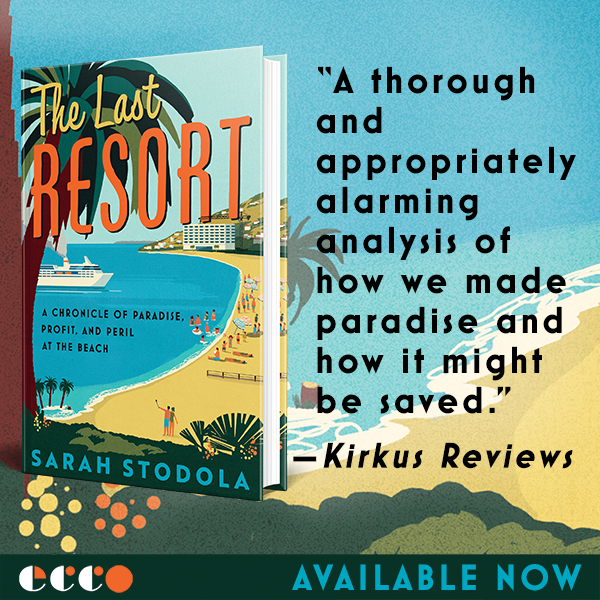Among its other more famous traits, Marfa, Texas is a hard-drinking town. Defiant and irreverent and, in a rare comingling, also friendly. Its remoteness means that the rules elsewhere don’t apply. Creativity trumps profitability. Interesting trumps sensible. And it’s so hard to get to, residents want to reward you once you arrive, eager to show you the way. I’d headed there for work, interviewing artists and makers who as often as not were openly nursing a hangover. From behind his, one artist recommended the Lost Horse Saloon.
Approached at night especially, the Lost Horse evokes one-stoplight towns; it evokes the promise of ice-cold domestic beer; it evokes something southern or something western, or maybe the meeting point between these two places that are also concepts.
A red neon sign announces “beer” to the endless darkness at the edge of town. Here in Marfa, the darkness truly is endless, miles and miles across the high desert to the nearest town, and many more to anything resembling a metropolitan area.
If you are a city girl, like me, you might anticipate some cold shoulders. The kinds of people who make their way to a bar like this are the kinds who want to be lost, you might think. And then you open the door and walk in.
Expectations don’t bear out, exactly, although whiffs of their confirmation pop up here and there. Which is a net positive, because without them you might feel gypped. The night I walked into the Lost Horse Saloon, the room was nearly empty, save for a few old-timers and a couple of guys making use of the a pool table. The place was larger, I think, than your run-of-the-mill roadhouse. The tables didn’t match, the drywall had never made it up, leaving the studs exposed, and the floor was concrete. These touches conveyed their own brand of curated ambience.
If the owner is there, you’ll know him by his cowboy hat and eyepatch and, does that qualify as a handlebar moustache? Missed it by centimeters, if not.
At the bar, a bull’s skull hung above the mirror. We ordered two ice-cold domestic beers with one ten-dollar bill, tip and all, wavered, then decided to head out to the back yard, where one band was breaking down its set and another was assembling it. The crowd, and it was crowded, showed a distinct lack of urgency. Nothing needed to happen.
Spend three days in Marfa and it’s hard to go anywhere without running into someone. We learned this after three days exactly. In that crowd I recognized the guy from Cobra Rock, the cult boot maker, whose workshop I’d visited earlier that week. His name is Colt and he makes each pair by hand. There’s an eight-month waiting list to snag a pair.
Artsy young people and artsy youngish people milled about with a certain languor, petting the dogs they’d brought along or sipping a beer. It felt vaguely like part of a summer concert series in an urban park. The band, when it came on, wasn’t anything we couldn’t have heard back in Brooklyn, but the experience was nothing like Brooklyn. Everything action put forth in today’s Brooklyn is self-conscious. There are too many people for whom to perform. At the Lost Horse, it felt like no one was watching and people lived accordingly.
